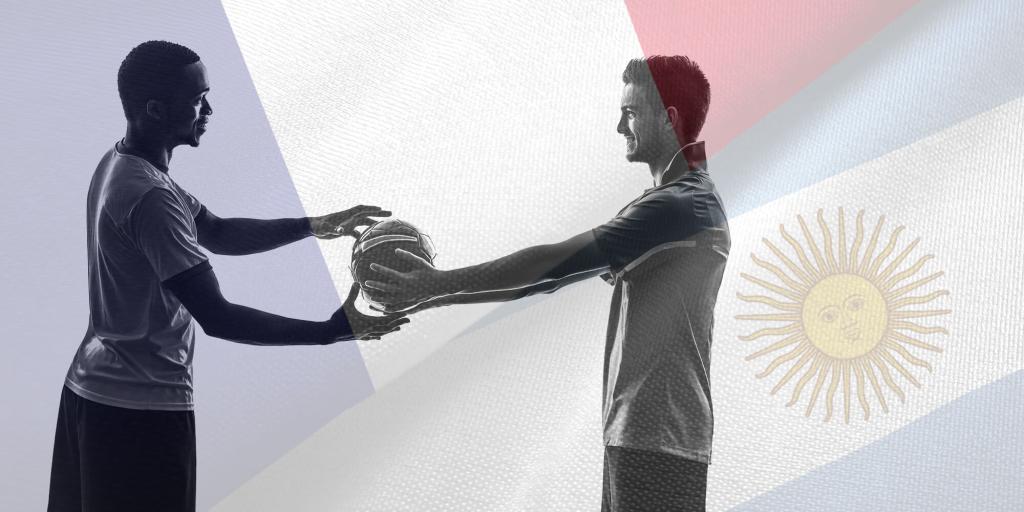
World Cup 2022 and Tomorrow’s World
The final match of the 2022 FIFA World Cup, between teams from France and Argentina, took place on December 18, ending in victory for Argentina and record-breaking viewership and final revenues. Many of you have likely enjoyed following some of the matches—especially the awesome final game between two inarguably great teams—while others might be thinking, What’s the World Cup?
The World Cup is a global soccer (or “football”) tournament that takes place every four years. This year, the tournament was hosted by the small Middle Eastern nation of Qatar, which spent around $300 billion preparing for the tournament. The 32 qualified teams hailed from nations around the globe, on every major continent—only the unfortunate few scientists in Antarctica didn’t field a team.
The World Cup draws more attention and fascination than almost any other activity in modern entertainment. Some lists of the most-watched television events in history rank many World Cup matches. In some nations, soccer fandom is almost like a religion.
Whether or not you enjoy following the World Cup, it captivates the attention of billions of sports fans the world over. Like those of many sports, of which soccer could be called “king” due to its enormous worldwide popularity, the games can be fun to watch and talk about with friends and family.
But how might the World Cup provide a small insight into tomorrow’s world?
For such a global event that attracts billions of human beings’ interest, what does it say about mankind as a whole? Well, it gives a snapshot of “the good, bad, and ugly” of human beings.
Several stories of this year’s World Cup have been widely reported on recently. Accounts involving bribery, corruption, exploitation of workers, and other significant issues were unfortunate behind-the-scenes aspects of the tournament. Like all human endeavors, the “works of the flesh”—like idolatry, hatred, contentions, jealousies, selfish ambitions, envy, and revelries—reared their ugly heads even over something fun like a soccer game (Galatians 5:19–21). These “bad and ugly” issues related to the World Cup are very significant and not to be dismissed, but in the remainder of this article, let’s consider a positive part of this event towards which so many direct so much of their attention.
It has been very interesting to watch some nations come together and set aside their differences for 90 minutes to kick a ball around. Even two of the most bitter enemies, the United States and Iran, played a match together. Obviously, this didn’t solve those countries’ enormous political battles, but there was something pleasant about the two nations “playing” together.
Consider two passages written by the Old Testament prophet Zechariah that provide small descriptions of what life will be like for mankind during the Millennium, the prophesied time when Jesus Christ will return and reign on earth:
And it shall come to pass that everyone who is left of all the nations which came against Jerusalem shall go up from year to year to worship the King, the Lord of hosts, and to keep the Feast of Tabernacles (Zechariah 14:16).
Thus says the Lord of hosts: “Old men and old women shall again sit in the streets of Jerusalem, each one with his staff in his hand because of great age. The streets of the city shall be full of boys and girls playing in its streets” (Zechariah 8:4–5).
It’s natural to imagine what the boys and girls will be playing. Soccer, of course! Actually, we don’t know, but it is interesting that boys and girls from a young age love to bounce, throw, and kick some type of ball!
These scriptures, along with many others, describe how Jesus Christ will bring peace to the world by restoring love and camaraderie between peoples of different races, tribes, and nations—even nations that had been enemies for centuries (Isaiah 19:23–25). He will even replace the languages of mankind, giving them a “pure language,” so that all peoples and nations can call on His name and serve Him in harmony (Zephaniah 3:9)—and perhaps this shared language will make it easier to play games together!
Hopefully, the final match of the World Cup offered excitement, fun, and good sportsmanship for the many millions who tuned in for it, maybe including you! In a very small way, perhaps this year’s tournament, displaying many nations playing together, provided the slightest glimpse of what the world will be like during the millennial reign of Jesus Christ—a world where all peoples and nations will get along, not only when playing a game, but in every aspect of life.
To learn more, be sure to read online or order a free copy of the booklet The World Ahead: What Will It Be Like?
Stay up to date with our Weekly Digest Email!
Tomorrow's World ComMentary Podcast
Subscribe to Tomorrow's World Commentary podcasts on iTunes and Google Play!



